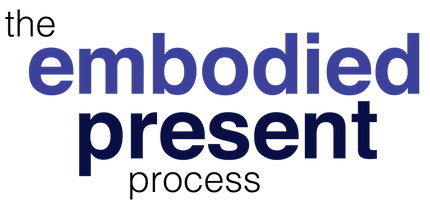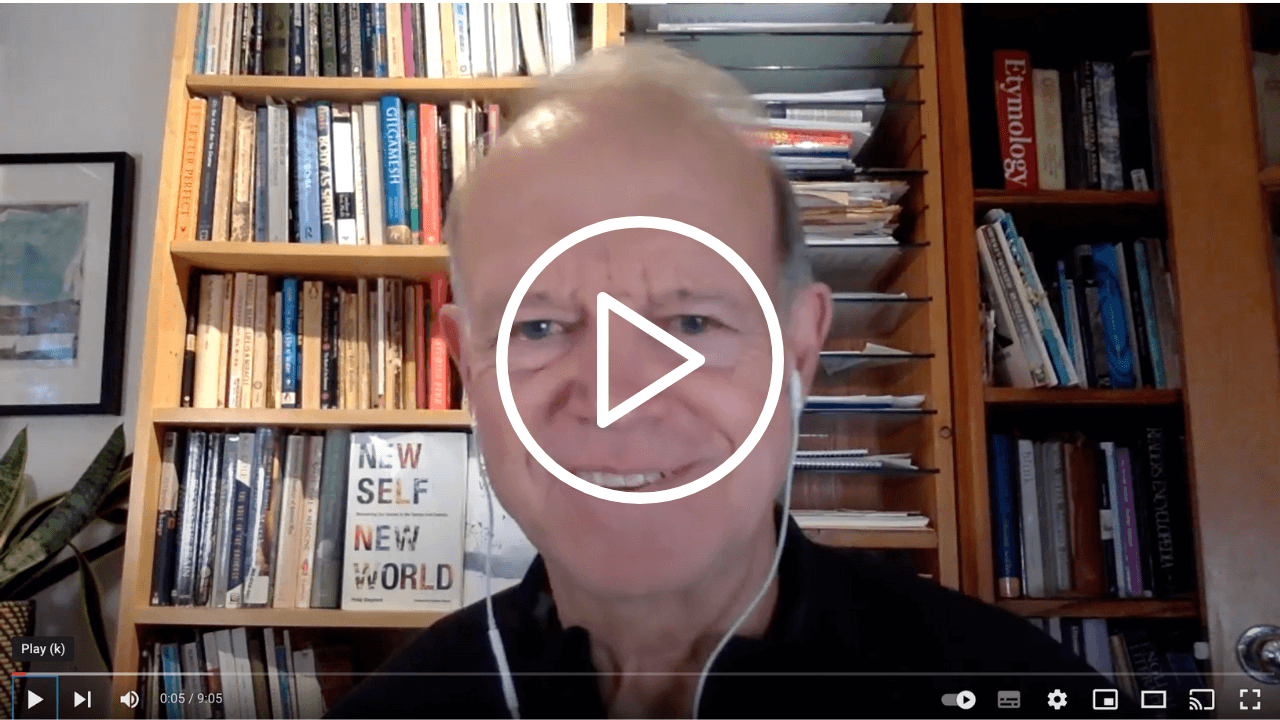In his classic book, The Hero with a Thousand Faces, Joseph Campbell presents not just the hero, but also the tyrant with a thousand faces – and shows him to be an equal force at work within the stories of world myth. As those stories bring the tyrant to life for us, we witness his desperate self-centeredness, his need to acquire and hold fast to whatever he can, and his impulses to manipulate people and circumstances to suit his personal agenda. What distinguishes the tyrant’s attitude above all else is his belief that he deserves his special status because, according to some private yardstick, he is better than others.
If the reader of Campbell’s book is astute, she will detect within the lineaments of the tyrant a mirror that shows up aspects of her own nature. We all harbor tyrannical tendencies – first, because we are human, but even more so because we live in a culture that is committed to the tyrant’s goals of acquiring and controlling, and which sees those goals as normal and prudent.
The tyrant’s impulses generate such a hold on our culture that they impact our relationships with nature, food production, medicine, justice, education, spirituality and consumption. The tyrant’s influence is seen in the value we place on “personal net worth,” and in our devotion to an economic model that has to grow without limit to remain stable – more, more, always more. The tyrant’s worldview is seen in the fears that separate us from our neighbors and insist, “Just leave me alone.” The tyrant’s assumptions are evident in the way we speak about nature as something we don’t really belong to – and even speak of great tracts of it as belonging to us.
Our culture identifies so deeply with the aspirations of the tyrant that when Campbell characterizes him as, “the man of self-achieved independence,” we find in that phrase a precise description of the American Dream – echoing as it does “the self-made millionaire.”
There is a strange cognitive dissonance in our relationship with tyranny. Even as we denounce it in the political realm, we rely on it in the personal realm. Multiple private, top-down decisions are what get us through each day. We sit in our heads and tell ourselves what to do and how to do it. We develop an image of how we should be and try to make ourselves conform to that idea. This habitual mode is deeply familiar – but it is a divided state in which you can neither think nor act with the whole of your being. One part of you presumes to know what’s best, and supervises the rest of you to achieve it.
The problem that prompts us into such division is how to move forward, what to do next? The hero attunes to the world and finds guidance there – feels it calling to him, pointing him forward. We contract from the world and move forward not as a summons to life, but the way a manager in his office overlooking the factory floor calls the shots and run the show. Our habit of supervising from the head runs roughshod over the sensitivities of our being.
Doing is our imperative. Its dictates divorce us from the present, and consequently lead to a deep confusion in our understanding of self and world – one that does damage to both. This is particularly evident in our confusion between ‘me’ and ‘mine’. We frequently mistake one for the other. For instance, we may talk about ‘my body’ as we would talk about ‘my car’ – as something that gets us around, and maybe doesn’t look as great as we’d like it to; as something that requires maintenance, checkups, and the right fuels; and as something that occasionally fails and doesn’t run without supervision, even though it’s got impressive computing power. As something, ultimately, that we have.
But the body isn’t something you have, nor is it a tool you use to interact with your environment. The body is you – it is your mindful presence in the world. If I were to pinch your arm, I’d be pinching you. Thinking of the body as a possession – as ‘mine’ rather than as ‘me’ – radically biases your experience, objectifying and contracting it, so that you feel separate from your living context.
We similarly turn what is ‘mine’ into ‘me’. In the same way that we might relate to the body as though it were a vehicle, we can relate to a vehicle as though it were an extension of the self. The look and power and precise handling of a car can play a significant role in how we feel about ourselves. We don’t just own a car, we identify with it. Car manufacturers make hay from that, offering their new products as flattering opportunities for self-expression and affirmation – subtly assuring us that we deserve such an affirmation. But the car does not express you. It is an object that was assembled of metal, plastic and glass in a factory you’ve likely never seen. What the car expresses are the specific qualities that the manufacturer believes will entice you to buy it – qualities you want to be identified with.
 The way we identify with cars is just one example of how what we buy blurs into who we are. And whether we confuse what is ‘mine’ with ‘me’ or the other way around, the effect is the same: it objectifies, contracts and divides our experiences of self and world. The way we construe ownership precipitates that effect, igniting the fantasies of the tyrant – fantasies that all revolve around the idea of fortifying an existence so that it can achieve independence from the world. In our culture we heap personal expectations on the promise of such independence – but it is a slippery fantasy. No example of independence can be found anywhere in the world: everything leans on everything. Everything depends on everything. Independence doesn’t exist.
So when we call a thing ‘mine’, we can either acknowledge the transience of what that means, the limitations of it, or we can in our minds separate that thing from the world and relegate it to the exclusive and abstract realm of a possession. If we do the latter, we objectify the possession, as though it stood independent of the world’s processes; we contract the self by announcing our allegiance to that exclusive and abstract realm; and we divide the objects of the world into the categories of ‘mine’ and ‘not mine’.
Eventually the confusion between ‘me’ and ‘mine’ transfers the same qualities onto the self: it too becomes objectified, contracted and divided. That experience of the self is pretty much accepted as normal in our culture. We think it’s what being human feels like. But having habituated to that ‘normal’ state, we miss the transient reality of ‘ownership’, in which our true role can only be understood as that of a caretaker; and we also miss the reality of ‘me’ which, untethered from the constricting limits of ‘mine’, richly dilates and discovers that all the world lives in us, as we live in it.
All experience is shared experience. The tree outside my window and I exchange breaths. The pull of the moon draws my blood, just as it lifts oceans. The pebble at my feet is more ancient than I by millions of years, but is created of the same star matter that is even now stitching together to create the cells that sustain my life. Tree, moon, pebble, stars, and all else live through me, and I have no reality independent of them.
The tyrant’s insistence on independence, his acquisitiveness, and his need for control live in each of us – but so, too, do the hero’s capacity for feeling What Is, and his passions for inquisitiveness, harmony, and an unconfined, uncontracted experience of life. Those passions are dulled in us by our confusion about ‘me’ and ‘mine’; and frankly, rekindling them is dangerous – doing so would threaten the status quo we live by, and topple our devotion to the head as the rightful ruler of the self.
But reigniting the hero’s passions within you does not mean a rejection of doing – it rather initiates a journey on which you learn what it means to ‘do’ with the whole of your being sensationally present. The fantasies of the tyrant make that impossible, rooted as they are in the contracted fiction of independence. But if you can see those fantasies for what they are, and liberate your heart from them, you can come home to your true nature. When that happens, your experience of ‘me’ becomes expansive rather than contracted – felt as an energetic field rather than as a material limit. When your actions find guidance in being, they bring harmony rather than division. Who you are becomes inclusive rather than exclusive. ‘Mine’ inspires gratitude rather than entitlement or defensiveness. And the field of your attention softens to become world-conscious rather than self-conscious.
The journey out of the tyrant’s frenzied fantasies brings many gifts, but perhaps the greatest is the way it returns our sense of self to the felt reality that holds us in its arms. And I believe that such a transformation can only take place as we return to the full, mindful reality of our bodies.
The way we identify with cars is just one example of how what we buy blurs into who we are. And whether we confuse what is ‘mine’ with ‘me’ or the other way around, the effect is the same: it objectifies, contracts and divides our experiences of self and world. The way we construe ownership precipitates that effect, igniting the fantasies of the tyrant – fantasies that all revolve around the idea of fortifying an existence so that it can achieve independence from the world. In our culture we heap personal expectations on the promise of such independence – but it is a slippery fantasy. No example of independence can be found anywhere in the world: everything leans on everything. Everything depends on everything. Independence doesn’t exist.
So when we call a thing ‘mine’, we can either acknowledge the transience of what that means, the limitations of it, or we can in our minds separate that thing from the world and relegate it to the exclusive and abstract realm of a possession. If we do the latter, we objectify the possession, as though it stood independent of the world’s processes; we contract the self by announcing our allegiance to that exclusive and abstract realm; and we divide the objects of the world into the categories of ‘mine’ and ‘not mine’.
Eventually the confusion between ‘me’ and ‘mine’ transfers the same qualities onto the self: it too becomes objectified, contracted and divided. That experience of the self is pretty much accepted as normal in our culture. We think it’s what being human feels like. But having habituated to that ‘normal’ state, we miss the transient reality of ‘ownership’, in which our true role can only be understood as that of a caretaker; and we also miss the reality of ‘me’ which, untethered from the constricting limits of ‘mine’, richly dilates and discovers that all the world lives in us, as we live in it.
All experience is shared experience. The tree outside my window and I exchange breaths. The pull of the moon draws my blood, just as it lifts oceans. The pebble at my feet is more ancient than I by millions of years, but is created of the same star matter that is even now stitching together to create the cells that sustain my life. Tree, moon, pebble, stars, and all else live through me, and I have no reality independent of them.
The tyrant’s insistence on independence, his acquisitiveness, and his need for control live in each of us – but so, too, do the hero’s capacity for feeling What Is, and his passions for inquisitiveness, harmony, and an unconfined, uncontracted experience of life. Those passions are dulled in us by our confusion about ‘me’ and ‘mine’; and frankly, rekindling them is dangerous – doing so would threaten the status quo we live by, and topple our devotion to the head as the rightful ruler of the self.
But reigniting the hero’s passions within you does not mean a rejection of doing – it rather initiates a journey on which you learn what it means to ‘do’ with the whole of your being sensationally present. The fantasies of the tyrant make that impossible, rooted as they are in the contracted fiction of independence. But if you can see those fantasies for what they are, and liberate your heart from them, you can come home to your true nature. When that happens, your experience of ‘me’ becomes expansive rather than contracted – felt as an energetic field rather than as a material limit. When your actions find guidance in being, they bring harmony rather than division. Who you are becomes inclusive rather than exclusive. ‘Mine’ inspires gratitude rather than entitlement or defensiveness. And the field of your attention softens to become world-conscious rather than self-conscious.
The journey out of the tyrant’s frenzied fantasies brings many gifts, but perhaps the greatest is the way it returns our sense of self to the felt reality that holds us in its arms. And I believe that such a transformation can only take place as we return to the full, mindful reality of our bodies.
 The way we identify with cars is just one example of how what we buy blurs into who we are. And whether we confuse what is ‘mine’ with ‘me’ or the other way around, the effect is the same: it objectifies, contracts and divides our experiences of self and world. The way we construe ownership precipitates that effect, igniting the fantasies of the tyrant – fantasies that all revolve around the idea of fortifying an existence so that it can achieve independence from the world. In our culture we heap personal expectations on the promise of such independence – but it is a slippery fantasy. No example of independence can be found anywhere in the world: everything leans on everything. Everything depends on everything. Independence doesn’t exist.
So when we call a thing ‘mine’, we can either acknowledge the transience of what that means, the limitations of it, or we can in our minds separate that thing from the world and relegate it to the exclusive and abstract realm of a possession. If we do the latter, we objectify the possession, as though it stood independent of the world’s processes; we contract the self by announcing our allegiance to that exclusive and abstract realm; and we divide the objects of the world into the categories of ‘mine’ and ‘not mine’.
Eventually the confusion between ‘me’ and ‘mine’ transfers the same qualities onto the self: it too becomes objectified, contracted and divided. That experience of the self is pretty much accepted as normal in our culture. We think it’s what being human feels like. But having habituated to that ‘normal’ state, we miss the transient reality of ‘ownership’, in which our true role can only be understood as that of a caretaker; and we also miss the reality of ‘me’ which, untethered from the constricting limits of ‘mine’, richly dilates and discovers that all the world lives in us, as we live in it.
All experience is shared experience. The tree outside my window and I exchange breaths. The pull of the moon draws my blood, just as it lifts oceans. The pebble at my feet is more ancient than I by millions of years, but is created of the same star matter that is even now stitching together to create the cells that sustain my life. Tree, moon, pebble, stars, and all else live through me, and I have no reality independent of them.
The tyrant’s insistence on independence, his acquisitiveness, and his need for control live in each of us – but so, too, do the hero’s capacity for feeling What Is, and his passions for inquisitiveness, harmony, and an unconfined, uncontracted experience of life. Those passions are dulled in us by our confusion about ‘me’ and ‘mine’; and frankly, rekindling them is dangerous – doing so would threaten the status quo we live by, and topple our devotion to the head as the rightful ruler of the self.
But reigniting the hero’s passions within you does not mean a rejection of doing – it rather initiates a journey on which you learn what it means to ‘do’ with the whole of your being sensationally present. The fantasies of the tyrant make that impossible, rooted as they are in the contracted fiction of independence. But if you can see those fantasies for what they are, and liberate your heart from them, you can come home to your true nature. When that happens, your experience of ‘me’ becomes expansive rather than contracted – felt as an energetic field rather than as a material limit. When your actions find guidance in being, they bring harmony rather than division. Who you are becomes inclusive rather than exclusive. ‘Mine’ inspires gratitude rather than entitlement or defensiveness. And the field of your attention softens to become world-conscious rather than self-conscious.
The journey out of the tyrant’s frenzied fantasies brings many gifts, but perhaps the greatest is the way it returns our sense of self to the felt reality that holds us in its arms. And I believe that such a transformation can only take place as we return to the full, mindful reality of our bodies.
The way we identify with cars is just one example of how what we buy blurs into who we are. And whether we confuse what is ‘mine’ with ‘me’ or the other way around, the effect is the same: it objectifies, contracts and divides our experiences of self and world. The way we construe ownership precipitates that effect, igniting the fantasies of the tyrant – fantasies that all revolve around the idea of fortifying an existence so that it can achieve independence from the world. In our culture we heap personal expectations on the promise of such independence – but it is a slippery fantasy. No example of independence can be found anywhere in the world: everything leans on everything. Everything depends on everything. Independence doesn’t exist.
So when we call a thing ‘mine’, we can either acknowledge the transience of what that means, the limitations of it, or we can in our minds separate that thing from the world and relegate it to the exclusive and abstract realm of a possession. If we do the latter, we objectify the possession, as though it stood independent of the world’s processes; we contract the self by announcing our allegiance to that exclusive and abstract realm; and we divide the objects of the world into the categories of ‘mine’ and ‘not mine’.
Eventually the confusion between ‘me’ and ‘mine’ transfers the same qualities onto the self: it too becomes objectified, contracted and divided. That experience of the self is pretty much accepted as normal in our culture. We think it’s what being human feels like. But having habituated to that ‘normal’ state, we miss the transient reality of ‘ownership’, in which our true role can only be understood as that of a caretaker; and we also miss the reality of ‘me’ which, untethered from the constricting limits of ‘mine’, richly dilates and discovers that all the world lives in us, as we live in it.
All experience is shared experience. The tree outside my window and I exchange breaths. The pull of the moon draws my blood, just as it lifts oceans. The pebble at my feet is more ancient than I by millions of years, but is created of the same star matter that is even now stitching together to create the cells that sustain my life. Tree, moon, pebble, stars, and all else live through me, and I have no reality independent of them.
The tyrant’s insistence on independence, his acquisitiveness, and his need for control live in each of us – but so, too, do the hero’s capacity for feeling What Is, and his passions for inquisitiveness, harmony, and an unconfined, uncontracted experience of life. Those passions are dulled in us by our confusion about ‘me’ and ‘mine’; and frankly, rekindling them is dangerous – doing so would threaten the status quo we live by, and topple our devotion to the head as the rightful ruler of the self.
But reigniting the hero’s passions within you does not mean a rejection of doing – it rather initiates a journey on which you learn what it means to ‘do’ with the whole of your being sensationally present. The fantasies of the tyrant make that impossible, rooted as they are in the contracted fiction of independence. But if you can see those fantasies for what they are, and liberate your heart from them, you can come home to your true nature. When that happens, your experience of ‘me’ becomes expansive rather than contracted – felt as an energetic field rather than as a material limit. When your actions find guidance in being, they bring harmony rather than division. Who you are becomes inclusive rather than exclusive. ‘Mine’ inspires gratitude rather than entitlement or defensiveness. And the field of your attention softens to become world-conscious rather than self-conscious.
The journey out of the tyrant’s frenzied fantasies brings many gifts, but perhaps the greatest is the way it returns our sense of self to the felt reality that holds us in its arms. And I believe that such a transformation can only take place as we return to the full, mindful reality of our bodies.





Leave a comment